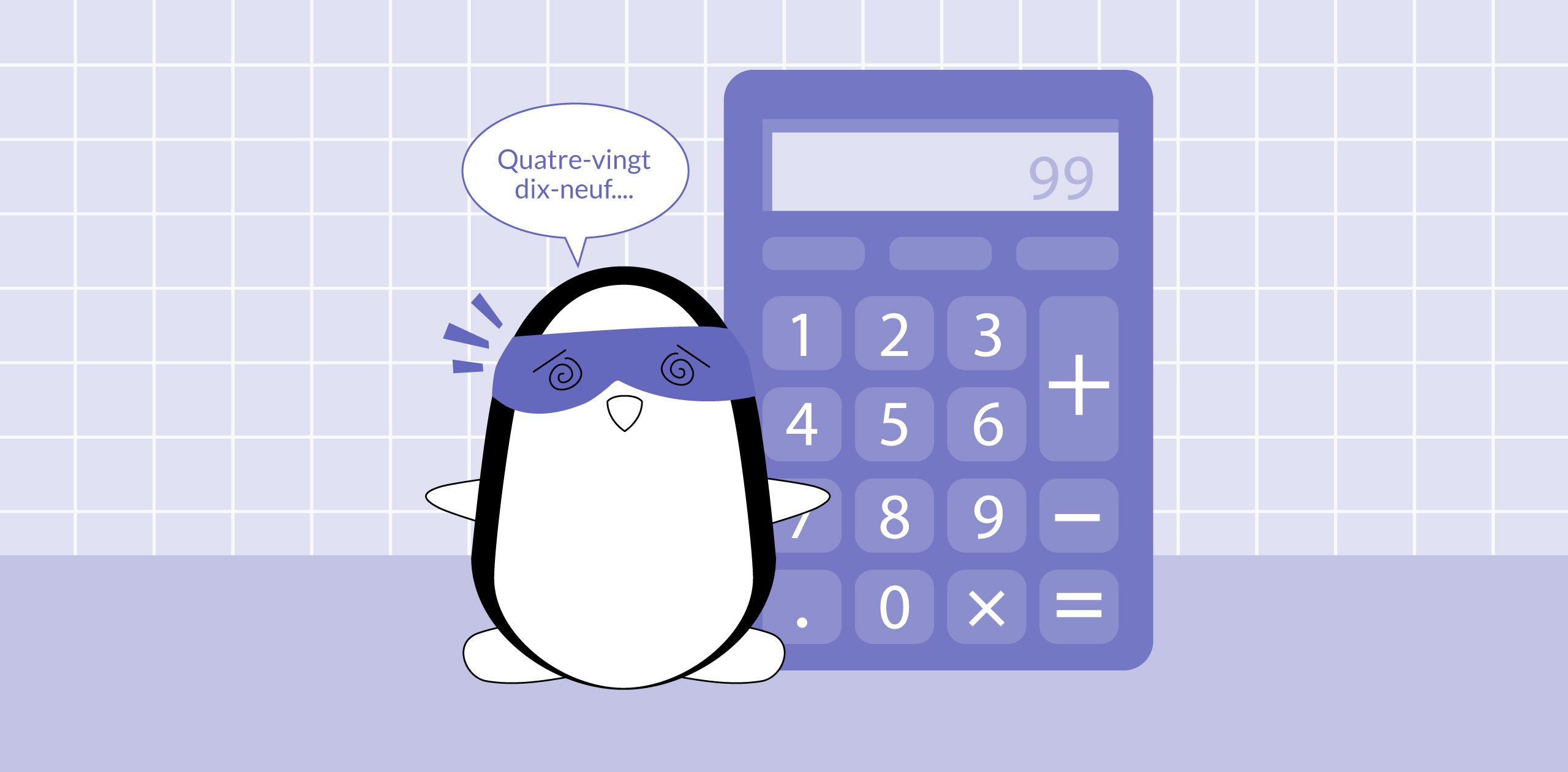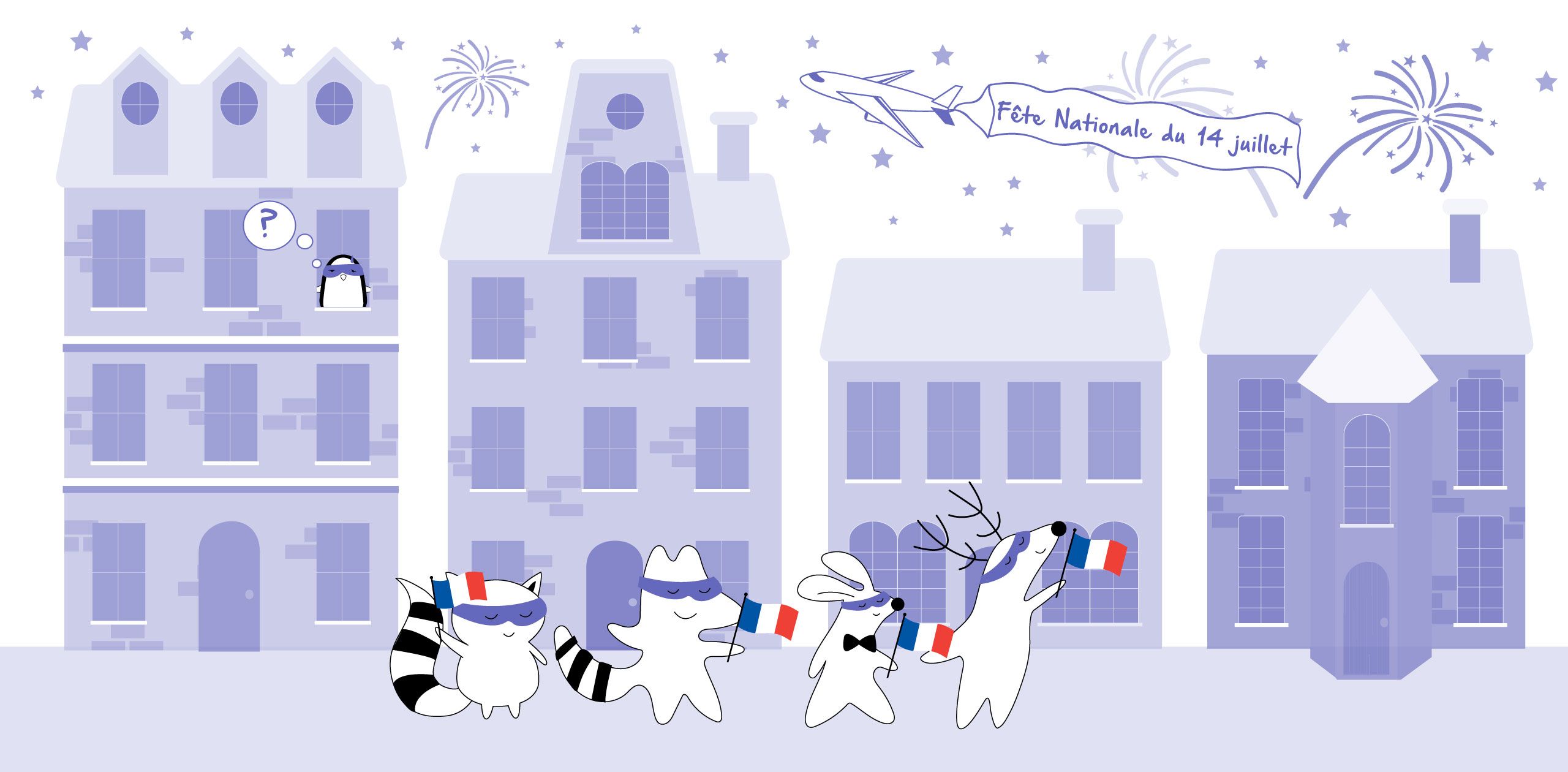
France is a country with deep-rooted holidays and traditions. The French take their holidays seriously, celebrating them with gusto and panache.
Because of that, one of the most important aspects of being a French learner is understanding these customs and traditions. After all, holidays are expressions of culture that tell you how to behave in certain situations or what to expect during particular times of year, as well as impact the way you see the culture and language of the country.
In the article below, let us tell you about the most widely celebrated holidays in France, such as Bastille day, Christmas, and Mardi gras. Read on to learn how they are celebrated and what you need to know when visiting France during these days.
Learn French with Langster
French Holidays: General Information
As a nation, France takes its holidays seriously. There are ten official national holidays, as well as countless regional, local, and bank holidays. Many of the national holidays commemorate significant moments in French history, while others celebrate more general aspects of French culture.
French public holidays are celebrated with a day off. However, when French public holidays fall on Thursday or Tuesday, Friday and Monday are also usually considered days off. This happening is called “to make a bridge”, or “faire le pont”, and while it’s not official and is not used in governmental institutions, most businesses do so.
Moreover, when public holidays in France fall on Sunday, the following Monday is usually also given as a day off.
New Year's Day – Nouvel An
New Year's Day is one of the most important public holidays in France. It celebrates the beginning of a new year and is marked by fireworks, parties, and gatherings with friends and family. In Paris, the biggest New Year's celebration takes place at the Eiffel Tower, where a large fireworks display is put on for thousands of spectators.
Many people also celebrate New Year's Day by drinking champagne and eating special foods like black-eyed peas or lentils. Some people make resolutions for the upcoming year, while others simply enjoy spending time with loved ones. Whatever people do to celebrate, New Year's Day is a time for joy and looking forward to the future.
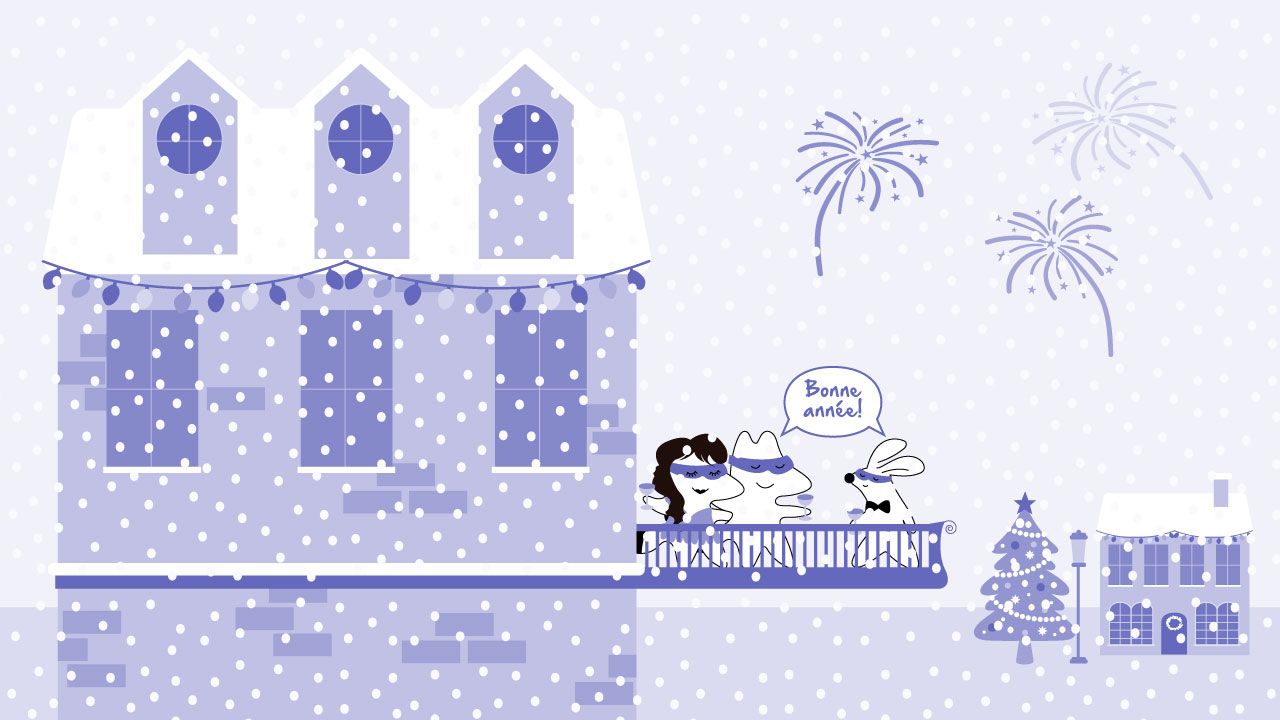
Epiphany – Épiphanie
Epiphany, or Twelfth Night, is one of the Christmas holidays. It commemorates the day when the three Wise Men arrived in Bethlehem to visit the baby Jesus. It is a widely celebrated holiday, but not an official one.
In France, it is traditional to eat a special cake on this day called a galette des Rois, or Kings' Cake. The cake is usually made of puff pastry and filled with almond paste. A small figurine called a fève is hidden inside the cake, and whoever finds it in their piece is said to have good luck for the year.
Easter and Easter-Related Celebrations – Pâques
Easter is one of the most important holidays in the Christian calendar, and it is celebrated with great fanfare in France. On Easter Sunday, many families attend church services and then enjoy a festive meal together. Easter Monday is also a holiday in France, and many people take the opportunity to spend time with family or friends.
In addition to Easter Sunday and Monday, there are several other holidays and important periods which are related to Easter. Lent, which is the 40-day period leading up to Easter, is observed by many Christians in France. Ash Wednesday (Mercredi des Cendres), Palm Sunday (Dimanche des Rameaux), and Good Friday (Vendredi saint) are all significant days during Lent.
Mardi Gras
Mardi Gras (also known as Fat Tuesday, Shrove Tuesday or Pancake Day) is a holiday which comes the day before Ash Wednesday. Mardi Gras is a time of feasting and celebration, and it marks the beginning of the Lenten season. Pancakes are traditionally eaten on this day, and many people throw parties or attend parades.
Mardi Gras first appeared as a small celebration, which was part of preparing for Lent – and with time, it spread through Europe and became quite popular. Later, Mardi Gras arrived in the United States, leading to it becoming one of the most notable celebrations in New Orleans, famous for its first Mardi Gras parade.
Today, Mardi Gras is celebrated in not only in New Orleans, but also cities and towns across Europe and overseas. In some areas of France, Mardi Gras is a more low-key affair, while in others, the celebrations are famed for their exuberance and extravagance.
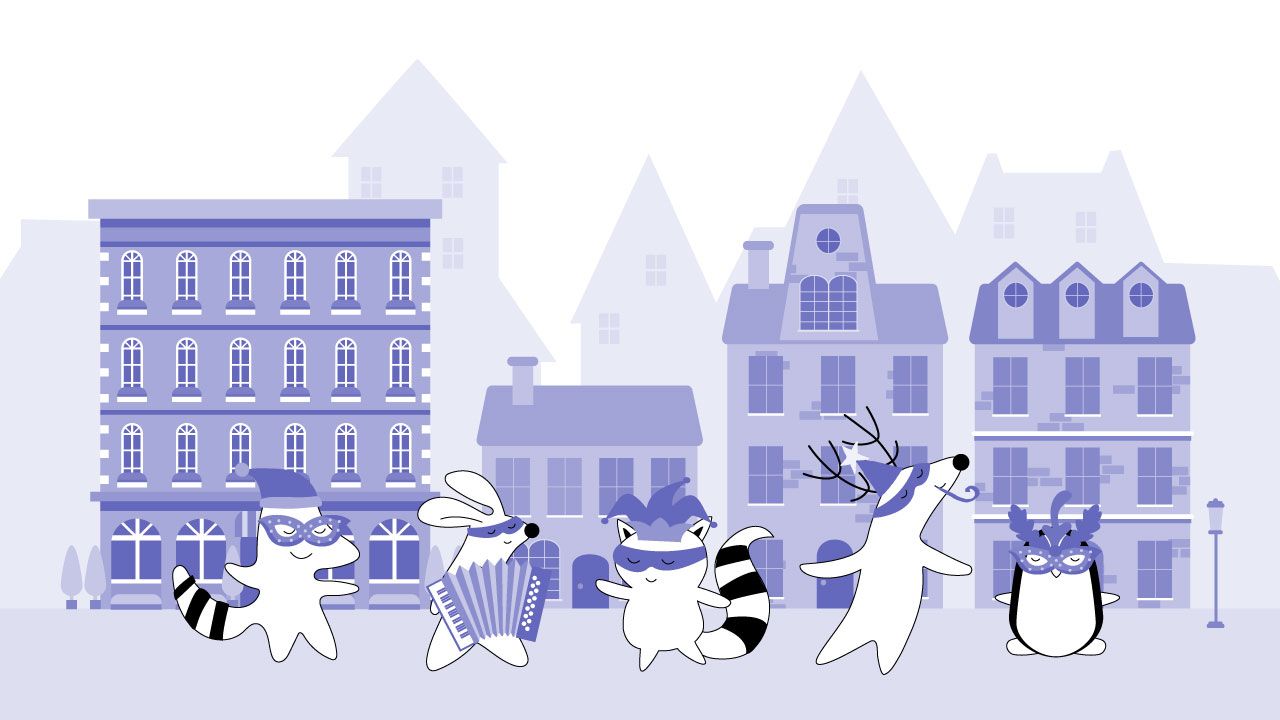
Labor Day – Fête du Travail
Labor Day, or Fête du Travail, is a holiday that celebrates the achievements of workers. It is celebrated on May 1st in France and is a day off for most people.
Many people celebrate Labor Day by attending parades or marches. These marches often have a political or trade union theme, and participants often wear special uniforms or badges. Others celebrate the holiday by participating in traditional folk dances or by enjoying a picnic with friends and family.
In some parts of France, it is also customary to give small gifts or treats to one's co-workers on Labor Day.
WWII Victory Day – Fête de la Victoire
Victory Day, or la Fête de la Victoire, is a holiday that commemorates the end of World War II. It is celebrated on May 8th in France and is a day off for most people.
Victory Day is one of the most important holidays in France. It celebrates the victory of French and Allied forces over Nazi Germany and marks the end of World War II. For many French people, Victory Day is a time to remember the sacrifices made by those who fought in the war and to honor the victims of the Holocaust.
There are many ceremonies and parades held on Victory Day throughout France. In Paris, the biggest parade takes place on the Champs-Élysées and features military vehicles, marching bands, and floats. Other celebrations include concerts, firework displays, and placing bouquets of flowers around the monuments dedicated to the people who lost their lives during the war.
Bastille Day – Fête nationale française
Every July 14th, the French celebrate Bastille Day (or the National French Holiday) with pomp and circumstance. This holiday commemorates the storming of the Bastille prison in Paris on July 14, 1789, an event which signaled the beginning of the French Revolution. These days, Bastille Day is celebrated with military parades, concerts, firework displays, and street parties.
For the French, Bastille Day is a symbol of national pride. It commemorates the moment when the people of France rose up against their oppressive monarchy and began to build a democracy. The holiday is also celebrated as a day of unity, bringing together people from all walks of life to celebrate French culture and traditions.
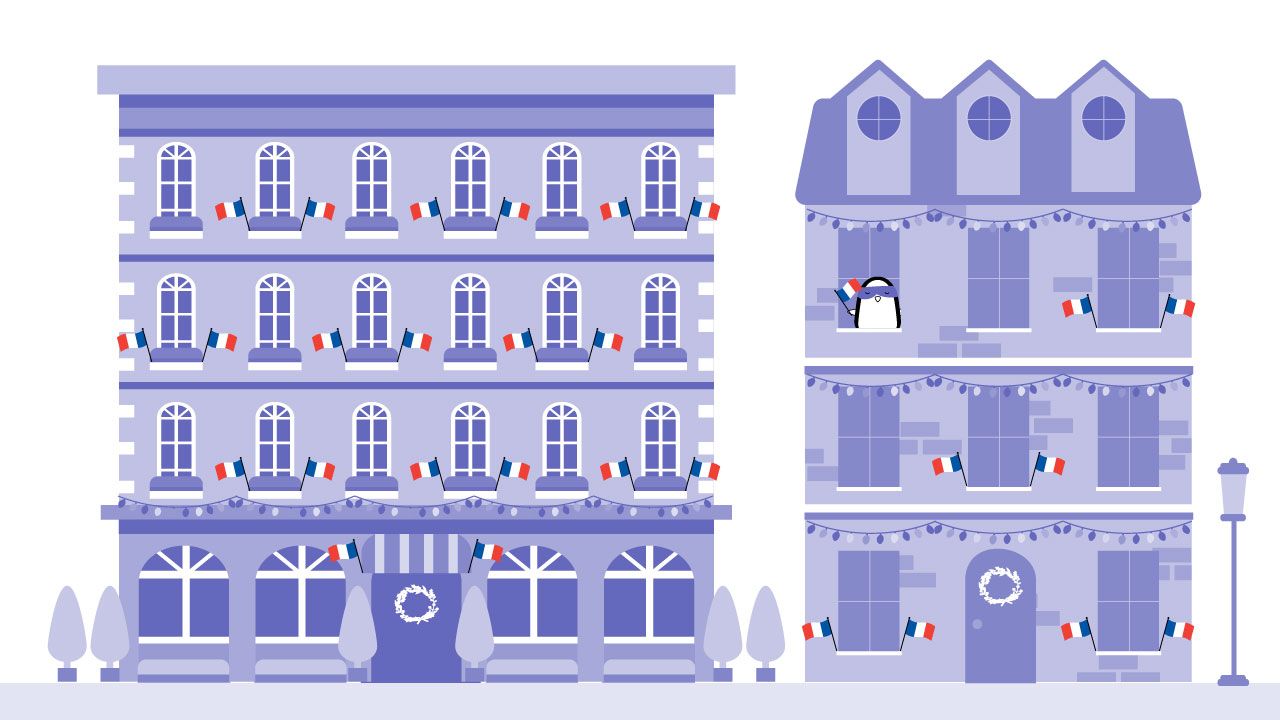
Assumption Day of the Blessed Virgin Mary – Assomption
August 15th marks the Assumption day of the Blessed Virgin Mary. This Catholic holiday celebrates the belief that Mary, the mother of Jesus, was taken up into heaven after her death. The Assumption is an important part of French Catholic tradition, and many Catholics in France participate in mass and other religious ceremonies on this day.
In addition to its religious significance, the Assumption of the Blessed Virgin Mary is also a national holiday in France. Many businesses and government offices are closed on August 15th, and many French people take the opportunity to enjoy a long weekend away from work or school.
All Saints Day – Toussaint
November 1st is All Saints' Day in France (known as Toussaint in French). This holiday is a Catholic feast day which honors all of the saints, both known and unknown.
In France, All Saints' Day is a public holiday, and many families place flowers on the graves of loved ones. Flower shops do brisk business on All Saints' Day, as many people buy flowers to place on gravesites.
While All Saints' Day is primarily a religious holiday, it also has secular elements. In recent years, many towns and cities have begun to hold Halloween-like celebrations on October 31st (known as Hallowe'en or Samhain in France), complete with costumes, parties, and candy.
Armistice Day – Jour du Souvenir
Armistice Day is a national French holiday which commemorates the end of World War I. This holiday is celebrated on November 11th, the date on which the armistice was signed in 1918.
Armistice Day is an important holiday in France for two reasons. First, it marks the end of a devastating war which claimed the lives of millions of people. Second, it celebrates the victory over Central Powers and the restoration of peace.
In France, Armistice Day is a day of remembrance. Families often gather to commemorate loved ones who died in the war, and there are often ceremonies and parades to mark the occasion. The day is also a time for reflection, and many people take the opportunity to think about the horrors of war and the importance of peace.
Christmas – Noël
Christmas is one of the major winter holidays in France, and it is celebrated with great enthusiasm throughout the country. Christmas Eve is the most important day of the Christmas season, and many French people attend church services and enjoy a festive meal with family or friends.
Christmas Day is also a public holiday in France, and many people take the opportunity to spend time with loved ones. The celebration of Christmas in France also includes many traditions, such as the decoration of Christmas trees, the exchange of gifts, and the eating of special holiday foods – for example, a roasted turkey or a Christmas log (“Bûche De Noël”).
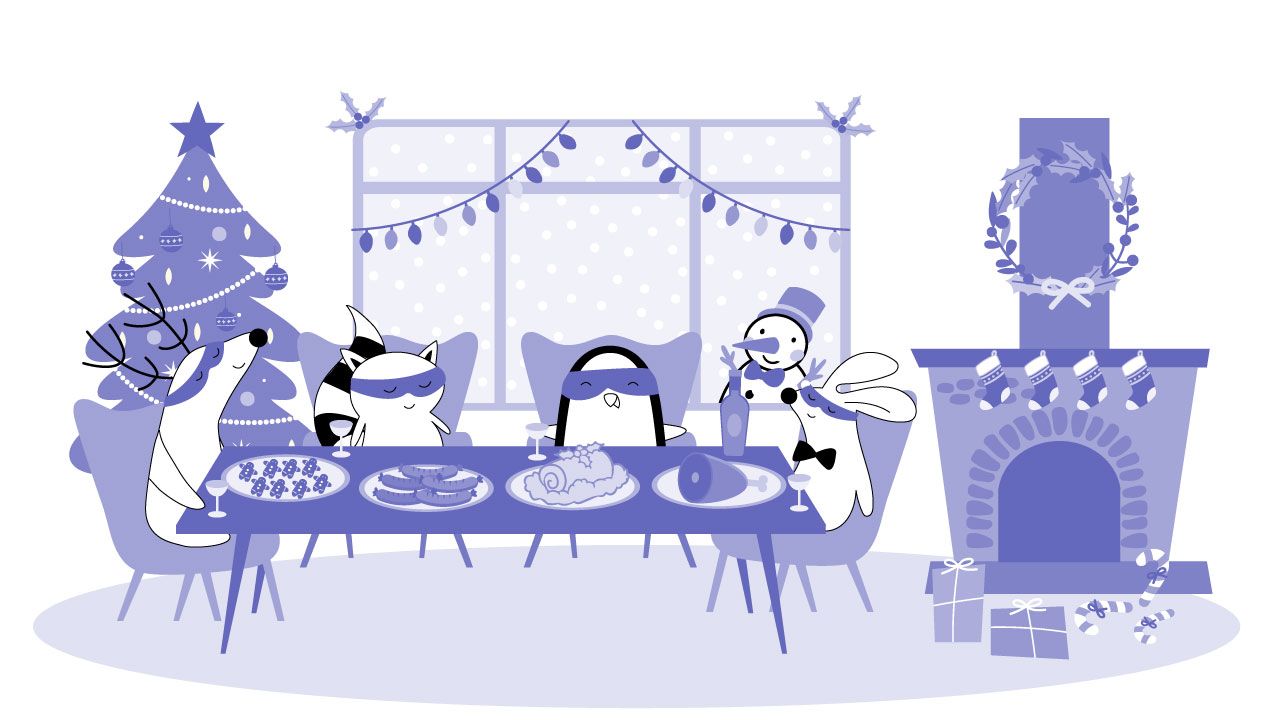
Final Thoughts on French Holidays
The French take their holidays seriously, with ten national holidays and countless regional and local holidays. Many of the national holidays commemorate significant moments in French history, while others celebrate more general aspects of French culture.
French celebrations are often run with chic and pompe, and interesting traditions, such as Galette des Rois, make the days even more enjoyable for all the French people and visitors of the country.
So if you want to embrace French culture and feel a bit like a French person yourself, make sure to take a trip to France on one of the holidays mentioned above – we promise, you won’t regret it.








